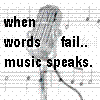FIRST POSTING - READING FOR PLEASURE
Hello Datin and of course, to all the readers who are currently having a glimpse at my latest posting here. This is one of the assignments given that is meant to be posted on blogs. Here I am! This assignment was done in pair whereby my pair was Revathy d/o Letchumanan. Before I go on, let me just brief a little on what we were required to do. The task was to find an example of an online text that can be used to explain on of 5 types of reading which are reading for pleasure, reading for information, reading for task completion, reading for instruction or incidental reading. We decided on doing reading for pleasure as we found it interesting and an assignment that was FUN to do, actually!
Before I go on, let me just explain on what we understood by the term of “reading for pleasure”. To us, we interpreted this as a kind of reading that is mostly done during free time or as a time pass and there is no clear objective as to what we are supposed to read or learn about. But this does not mean that this kind of reading is purposeless or is a waste of time as we believe that no kind of reading is a waste of time. Reading for pleasure can be said is one way to relieve stress after a long day of classes or work as it does not require any kind of commitment or effort but only our interest, especially in the reading field. For this particular assignment, we are not going to look into hard-copy reading materials like a novel or a magazine but online texts.
Online texts are texts found online and can be read while one is online. These are texts that are put up by variety of people for the benefit of others and also as a way of introducing themselves to the readers outside. Online texts have enabled many to obtain knowledge in a more convenient way than the traditional way of looking for a book in a library or a bookstore whereby it takes a lot of time and mobility. Thus, online texts have widened the general knowledge of many by just a click.
As we are talking about “reading for pleasure” here, my partner and I have decided to look into poems of olden times as we are fond of the work of literature years ago that are still fresh up to this day and available to many, whatsmore through various of websites.
First, let us look into a brief biography of a great poet named William butler Yeats. William butler Yeats was a very well known poet of the late 1890s and 1900s who hailed from the Ireland and was born on 13th June 1865 in County Dublin. His mother was the one who introduced Yeats to the Irish folktales that he grew to like so much. Yeats studied in the metropolitan school of art in Dublin for a couple of years whereby some of his first works of poems were printed in the Dublin university review. He moved to New York in 1907 and at the age of 46, Yeats got married to Georgie Hyde lees in 1917. They had two children called Anne and Michael. His love for his children made him wrote two poems for them which were titled “a prayer for my daughter” and “a prayer for my son”.
A prayer for my daughter
May she be granted beauty and yet not
Beauty to make a stranger’s eye distraught,
Or hers before a looking-glass, for such,
Being made beautiful overmuch,
Consider beauty a sufficient end,
Lose natural kindness and maybe
The heart-revealing intimacy
That chooses right, never find a friend
A prayer for my son
Bid a strong ghost at the head
That my Michael may sleep sound
Nor cry, nor turn in bed,
Til his morning meal come round,
And may departing twilight keep
All dread afar till morning’s back.
These are the two poems written for his children that clearly show how much Yeats loved his children and how he was capable in putting his love in few beautifully written words. Besides that, Yeats was a lover of his country, Ireland as well which prompted him to compose a poem titled “the lake isle of innisfree” which is proudly used in Malaysia’s high school as part of its literature program to the students.
I will arise and go now,
For always night and day,
I hear the lake water lapping with low sounds by the shore,
While I stand on the roadway, or on the pavements grey,
I hear it in the deep heart’s core.
On 23rd of January 1939 and at the age of 73, William butler Yeats died in France. His gravestone is engraved with a line “cast a cold eye, on life, on death. Horseman. Pass by!” His last poem was “the black tower” in 1939. One of his poems that caught our eye was the one written below :
When you are old
When you are old and grey and full of sleep,
And nodding by the fire, take down this book,
And slowly read, and dream of the soft look
Your eyes had once, and of their shadows deep,
How many loved your moments of glad grace,
And loved your beauty with false or true,
But one man loved the pilgrim soul in you,
And loved the sorrow of your changing face,
And bending down beside the glowing bars,
Murmur, a little sadly, how love fled,
And paced upon the mountains overhead,
And hid his face amid the crowd of stars.
The examples above are just a cist of William butler Yeats’s beautiful work and you can find out more about his biography as well as read his other poems by visiting http://www.online-literature.com/yeats where you can read and feel his wonderful poems of all time.
Another poet who grabbed our attention is an Indian poet named Rabindranath Tagore who was born on 7th of may 1861 in Joransanko, Calcutta, India. He did his early education with tutors at home where he was exposed to a wide array of subjects including science, arts, English and Sanskrit. Tagore started writing poems at a very early age and some were published under his pen name “Bhanusingha” meaning “sun lion”. On December 9 1883, Tagore married Bhabatarini Devi and had 5 children.
Tagore’s contribution can not only be seen through his poems but also through his social work. This is evident in his effort in founding the school, Shantiniketan in 1901 (now known as Visva-Bharati University) in West Bengal. This is a school based on the ashram model with the emphasis on learning in a harmonious setting with a well-rounded education. Indira Gandhi and Mahatma Gandhi approved and loved Tagore’s concept.
As a patriot, Tagore composed the music and the lyric for India’s national anthem, “Jana-Gana-Mana” (thou art the ruler of all minds) and also Bangladesh’s national anthem, “Amar Sona Bangla” (my golden Bengal). When Tagore’s wife died in 1902, he wrote the poems in “Smaran” (in memoriam). With a great number of followers in India, Tagore traveled to United States and England to promote his work at Santiniketan. His most renowned work of all time, a song titled “Gitanjali” which Tagore translated into English, was read by many including Ernest Rhys and William butler Yeats and earned him the Nobel Prize for literature in 1931 because of its sensitive, fresh and beautiful verse and had brought Indian literature into the west. Rabindranath Tagore passed away in 1941.
GITANJALI
Thou hast made me endless, such is thy pleasure. This frail vessel thou emptiest again and again, and fillest it ever with fresh life.
This little flute of a reed thou hast carried over hills anddales, and hast breathed through it melodies eternally new.
At the immortal touch of thy hands my little heart loses itslimits in joy and gives birth to utterance ineffable.
Thy infinite gifts come to me only on these very small hands ofmine. Ages pass, and still thou pourest, and still there is roomto fill.
When thou commandest me to sing it seems that my heart would break with pride; and I look to thy face, and tears come to my eyes.
All that is harsh and dissonant in my life melts into one sweetharmony and my adoration spreads wings like a glad bird on itsflight across the sea.
I know thou takest pleasure in my singing. I know that only as a singer I come before thy presence.
I touch by the edge of the far-spreading wing of my song thy feetwhich I could never aspire to reach.
Drunk with the joy of singing I forget myself and call theefriend who art my lord.
I know not how thou singest, my master! I ever listen in silentamazement. The light of thy music illumines the world.
The life breath of thy music runs from sky to sky. The holy stream of thy music breaks through all stony obstacles and rushes on.
My heart longs to join in thy song, but vainly struggles for avoice. I would speak, but speech breaks not into song, and I cry out baffled.
Ah, thou hast made my heart captive in the endless meshes of thy music, my master!
Above is just a very small example of verse from Tagore’s Gitanjali.
For full version of it, please visit http://www.online-literature.com/tagore-rabindranath
Reading for pleasure helps us to be relaxed after getting ourselves cramped up with work all day long. Hereby, by this kind of reading it is said to set our mind free from stress. Maybe, you guys should try it out some day!
______________________________________________________
READING COMPREHENSION
This task is about identifying what category does a particular article fall into. Well, after finding some information through the net, I and my partner, Revathy d/o Letchumanan managed to come up with few interesting stuffs. We focused on the reading comprehension articles. According to our opinion, reading comprehension is defined as the stage of understanding certain texts. Reading comprehension focuses on understanding the topic in order to answer the given questions accordingly. Let us give you guys a clear cut of what is meant by reading comprehension. This particular type of article allows the viewers to understand the message thoroughly and clearly. After getting the gist of it, they are required to answer the questions that are related to the article.
Reading comprehension proficiency is depending on the ability of recognizing the words. For instance, students that have a very good command in English language are able to get the message in just a split of seconds whereas students that in the other way round will have a tough time understanding what is written. What happens here is, instead of understanding what is happening in the article, they will actually use the time to get what it means. Therefore, loads of time will be taken in order for them to understand the particular article and to interpret the data.Hereby, one needs to be efficient and proficient in English language in order to understand the words used in a particular text.
Reading comprehension needs understanding and almost everyone ranging from all sort of ages can do this activity. Here, the basic thing that you should be doing before getting information on what is written in the text is to preview the particular story in your own way and to have a clear picture of it. Not only that, you have to recognize the story structure as it can help you to understand the organization of the story. To make it easier while reading the text given, you can list down all the main points and ask yourself the questions that might occur. For instance - what is happening, where, when and how the activity is taking place, the main purpose and how many of them are involved. Having yourself fully equipped with the possible questions that might occur can enhance your understanding towards the text.In conclusion, reading comprehension suits each and everyone and one can enhance the understanding skills easily. In this task, we have attached one of the examples that can be categorized under reading comprehension.
EXAMPLE OF A READING COMPREHENSION ARTICLE :
THE PEACELIKE MONGOOSEJames Thurber, Vintage Thurber, vol.2Hamish Hamilton Ltd., London."Mongoose" illustrated by Charles Douglasreproduced courtesy of the Canadian Museum of Nature, Ottawa, Canada. In cobra country a mongoose was born one day who didn't want to fight cobras or anything else. The word spread from mongoose to mongoose that there was a mongoose who didn't want to fight cobras. If he didn't want to fight anything else, it was his own business, but it was the duty of every mongoose to kill cobras or be killed by cobras. "Why?"asked the peacelike mongoose, and the word went round that the strange new mongoose was not only pro-cobra and anti-mongoose but intellectually curious and against the ideals and traditions of mongoosism. "He is crazy,"cried the young's mongoose's father. "He's sick, "said his mother. "He is a coward,"shouted his brothers. "He's a mongoosexual,"whispered his sisters. Strangers who had never laid eyes on the peacelike mongoose remembered that they had seen him crawling on his stomach, or trying cobra hoods, or plotting the violent overthrow of Mongoodia. "I am trying to use reason and intelligence,"said the strange new mongoose. "Reason is six-sevenths of treason,"said one of his neighbours. "Intelligence is what the enemy uses,"said another. Finally the rumour spread that the mongoose had venom in his sting, like a cobra, and he was tried, convicted by a show of paws, and condemned to banishment.Moral:Ashes to ashes, and clay to clay,if the enemy doesn't get you your own folks may.
Reading Comprehension - Adapted from the book "Making Sense",G. Capelle, F. Grellet, V. Kay. D. Souliéclasse de première, nouvelle édition.Classiques HachetteQUESTIONS :
QUESTIONS 1/16
1 Cobras and mongooses are animals who
A. get along well with each other.
B. live peacefully side by side.
C. wage war against each other.
2. The word “spread” suggests that:
A. no mongoose was interested in the event.
B. the news was kept secret.
C. they all told each other the news.
3. A coward is a person
A. who can easily control his fear.
B. who likes to fight.
C. who is not courageous.
4. “had never laid eyes” means
A. hadn't seen him before.
B. had already seen him.
C. had been watching him for a long time.
5. Strangers remembered him although:
A. they had never laid eyes on him.
B. they had actually seen him.
C. they thought they'd never met him
ONLY 5 QUESTIONS ARE ATTACHED IN THIS ARTICLE. FURTHER QUESTIONS AND ANSWERS CAN BE VIEWED AT: http://beewebhead.net/exos/mong.html
Sunday, March 2, 2008
Posted by PUVIDYA D/O APPALARAMOO at Sunday, March 02, 2008
Subscribe to:
Post Comments (Atom)











2 comments:
hello Vidya!
Your work so far so good. More pictures ok. If you can add in sound than it will be interesting. Keep on blogging
thank you so much for the comment, datin. i will add more pictures soon..
Post a Comment